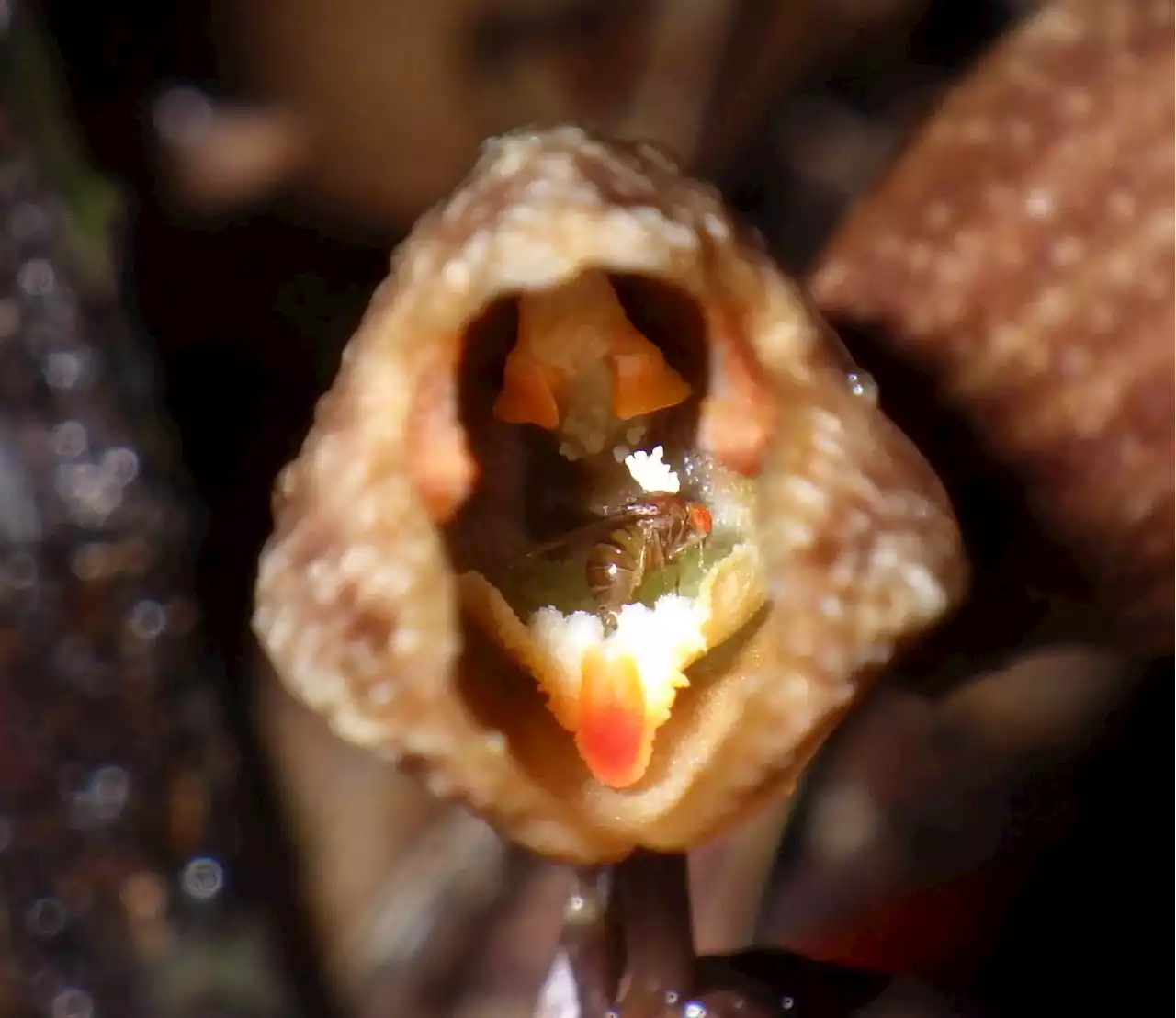For the first time, orchids that consume fungi have been observed offering their flowers to fungi-eating fruit flies in return for pollination services. This discovery represents the first evidence of nursery pollination in orchids. This unique new plant-animal relationship hints at an evolutionary
plant biologist Suetsugu Kenji, a specialist on these orchids, noticed that a certain species of this genus,, has particularly fleshy petals that decompose and fall off a few days after pollination. He decided to investigate these plants in the search for the first example of orchids engaging in “nursery pollination”, which is a plant offering a breeding ground to its pollinator.
Reference: “A novel nursery pollination system between a mycoheterotrophic orchid and mushroom-feeding flies” by Kenji Suetsugu, 23 August 2023,
Canada Latest News, Canada Headlines
Similar News:You can also read news stories similar to this one that we have collected from other news sources.
 Santa Clara County: Spraying, bait planned after fruit fly, West Nile discoveriesOne official said the oriental fruit fly poses a ‘disastrous’ threat to the regional and state agricultural industries.
Santa Clara County: Spraying, bait planned after fruit fly, West Nile discoveriesOne official said the oriental fruit fly poses a ‘disastrous’ threat to the regional and state agricultural industries.
Read more »
 What Our Editors Are Buying From the Summer Sendoff SaleOn our collective wish list: Dansk dinnerware, a fan-favorite fruit bowl, and more.
What Our Editors Are Buying From the Summer Sendoff SaleOn our collective wish list: Dansk dinnerware, a fan-favorite fruit bowl, and more.
Read more »
 Long Island volunteers pack healthy meal kits at back to school giveawayVolunteers packed bags of fruit, vegetables, dairy and healthy meal kits for community members in need.
Long Island volunteers pack healthy meal kits at back to school giveawayVolunteers packed bags of fruit, vegetables, dairy and healthy meal kits for community members in need.
Read more »
 Amazon Shoppers Call These $3 Apiece Wireless Bralettes the “Most Comfortable Bras Ever”Shoppers swear by the Fruit of the Loom Wirefree Cotton Bralette for its comfortable and supportive design. Shop the bra while it’s still on sale for as low as $3 apiece at Amazon.
Amazon Shoppers Call These $3 Apiece Wireless Bralettes the “Most Comfortable Bras Ever”Shoppers swear by the Fruit of the Loom Wirefree Cotton Bralette for its comfortable and supportive design. Shop the bra while it’s still on sale for as low as $3 apiece at Amazon.
Read more »
 Unlocking the secrets of cell antennasThe NSL (non-specific lethal) complex regulates thousands of genes in fruit flies and mammals. Silencing the NSL genes leads to the death of the organism, which gave the complex its curious name. Researchers have now discovered that the genes regulated by the NSL complex also include genes of the intraciliary transport system. This enables different cell types to form cilia on their surface, which are important for cell communication. The study shows that these genes are 'switched on' by the NSL complex, regardless of whether a particular cell has cilia or not. The researchers found that this class of cilia-associated genes is crucial for the function of podocytes. This is a highly specialized cell type of the kidney that, paradoxically, does not have cilia. These findings have important implications for ciliopathies and kidney disease.
Unlocking the secrets of cell antennasThe NSL (non-specific lethal) complex regulates thousands of genes in fruit flies and mammals. Silencing the NSL genes leads to the death of the organism, which gave the complex its curious name. Researchers have now discovered that the genes regulated by the NSL complex also include genes of the intraciliary transport system. This enables different cell types to form cilia on their surface, which are important for cell communication. The study shows that these genes are 'switched on' by the NSL complex, regardless of whether a particular cell has cilia or not. The researchers found that this class of cilia-associated genes is crucial for the function of podocytes. This is a highly specialized cell type of the kidney that, paradoxically, does not have cilia. These findings have important implications for ciliopathies and kidney disease.
Read more »
 Viewfinder review: Perspective is all in a unique first-person puzzlerIn the climate-ravaged world set up by the puzzle game Viewfinder, you must go deep to find abandoned research that could save Earth. Success depends on cunning tricks with dimensions, says Jacob Aron
Viewfinder review: Perspective is all in a unique first-person puzzlerIn the climate-ravaged world set up by the puzzle game Viewfinder, you must go deep to find abandoned research that could save Earth. Success depends on cunning tricks with dimensions, says Jacob Aron
Read more »
